Veterinary Public Health and Food Safety
Information at a Glance
| Tel: | 021 808 5273 |
| E-mail: | petunia.danti@westerncape.gov.za |
| Fax: | 021 808 5274 |
All meat consumers have the right of access to safe meat from known approved sources. The sub-directorate: Veterinary Public Health therefore facilitate the supply of healthy food of animal origin to the consumer by promoting household food security with regard to animal products and enforcing the Meat Safety Act (Act 40/2000) & Regulations, and thus improving public health and enhancing quality of life.
JOB PURPOSE
All meat consumers have the right of access to safe meat from known approved sources. The sub-directorate: Veterinary Public Health therefore facilitate the supply of healthy food of animal origin to the consumer by promoting household food security with regard to animal products and enforcing the Meat Safety Act (Act 40/2000) & regulations, and thus improving public health and enhancing quality of life.
CORE ACTIVITIES
FOODSAFETY AWARENESS:
Participate in exhibitions and farmers/community information days throughout the province; with emphasis on Food Safety and Zoonotic diseases. Provide training, technical assistance and health education to communities on food safety; thus empowering them to make an informed choice when consuming meat. Promote abattoir hygiene awareness to meat inspection staff, slaughter personnel, quality control officers and owners, through training. Liaise with various departments, non-governmental organizations and other role-players to promote and implement meat safety awareness programs.
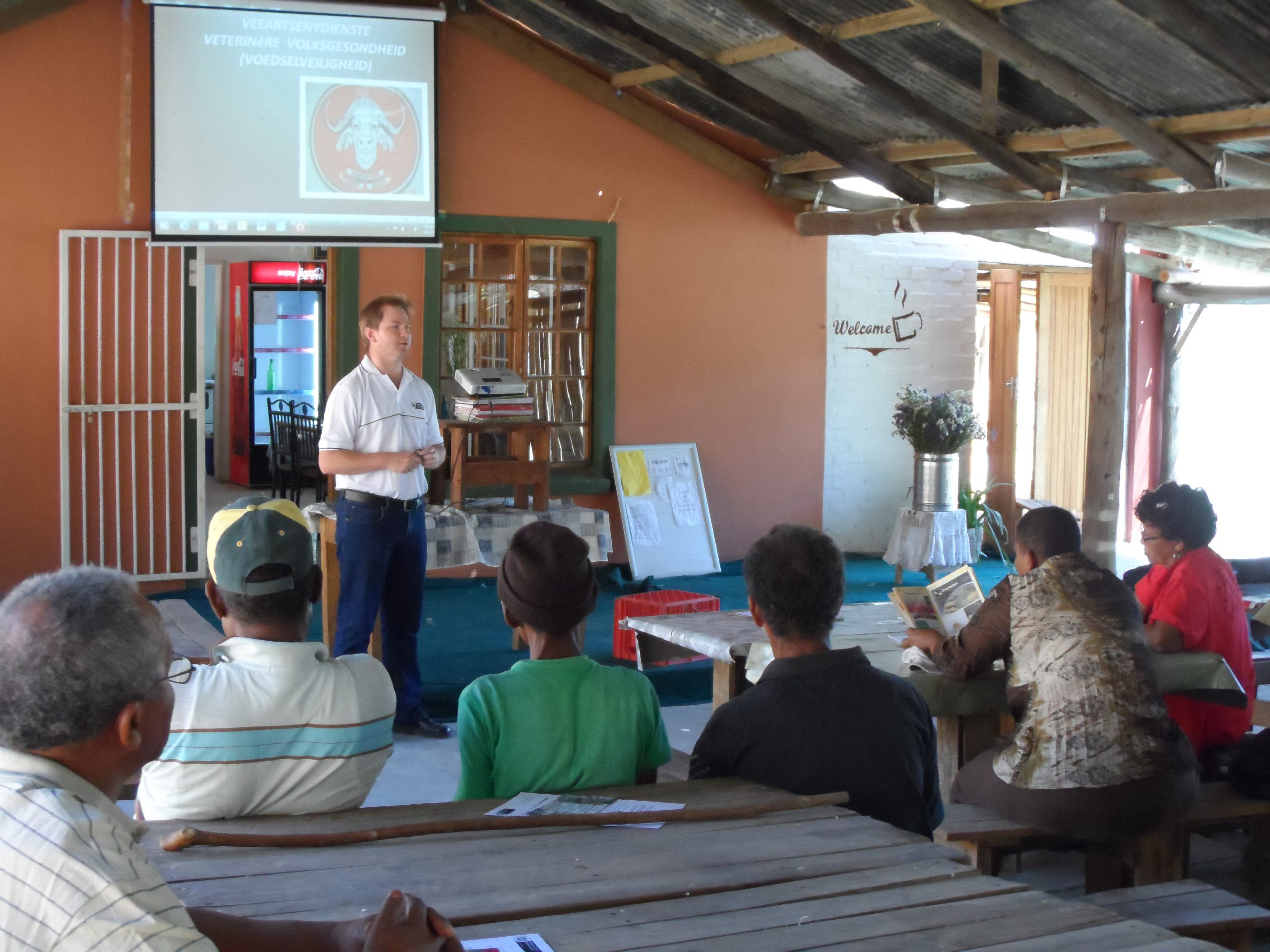
LAW ENFORCEMENT:
Investigate and control illegal slaughtering in collaboration with the relevant authorities and stakeholders (Police Stock Theft Unit, Environmental Health, SPCA, etc.); if necessary, combating the said violation via prosecution of the perpetrators by a court of law. Investigate and control illegal imports; the illegal transport of animals and animal products in conjunction with the relevant authorities, to ensure that no illegal animals or animal products enter the province. Serving of directives (warning letters, notices, instructions), when abattoir owners not complying with the national essential standards; and the illegal slaughter or culling of food animals.
SAMPLING & ANALYSES: 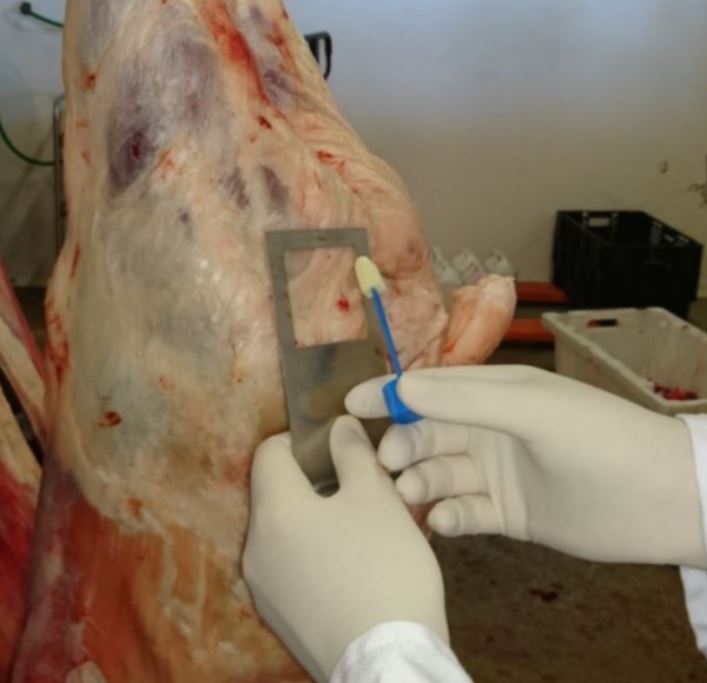
To identified diseases in animals, for example, test for possible Mad Cow Disease (BSE) & TB in animals. Taking of samples, (kidney, liver, fat) to test for the possible presence of residue in meat, for example: antibiotics, growth hormones & pesticides. Taking carcass swaps to determine if bacteriological levels are at acceptable levels on meat and to determine the standard of the slaughtering and dressing processes. Taking of water samples to determine if the quality of water comply with SANS 241.Taking swaps of meat contact surfaces/equipment, to determine effectiveness of cleaning and sanitation. Taking hand swaps of food handlers to determine effectiveness of personnel hygiene.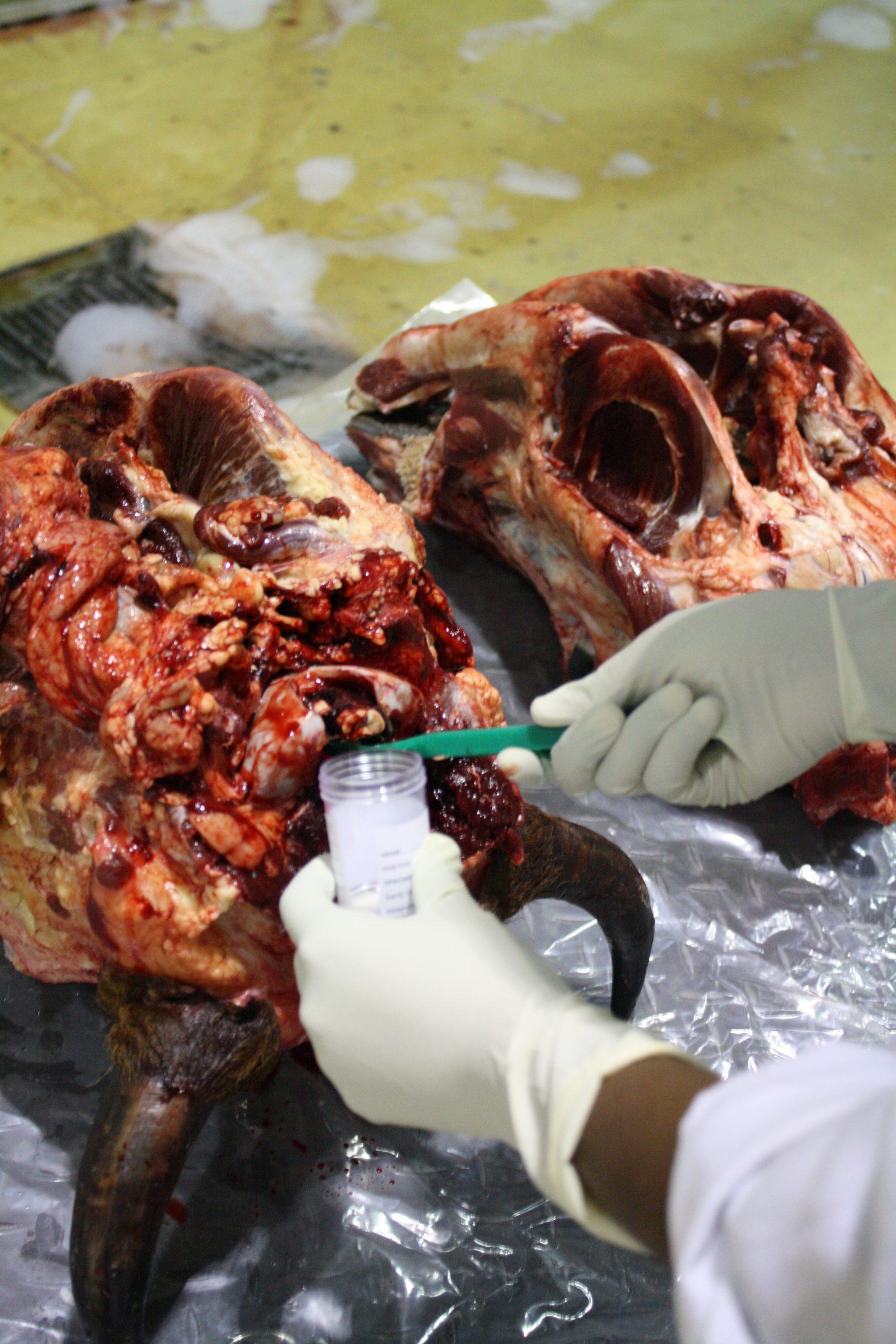
HYGIENE AUDITS/INSPECTIONS OF STERILIZING PLANTS:
Act as technical advisors for the Register of Act 36 of 1947; monitor the structural and procedural requirements at sterilizing plants e.g. in the production of blood meal, carcass meal and bone meal. Direct supervision of sterilization plants and their personnel to ensure that animal products are processed in such a way that it is safe for animal consumption.
HYGIENE AUDITS/INPECTIONS OF GAME HARVESTING AND GAME DEPOTS:
Monitoring the culling of animals for the local market to ensure that the game harvesting processes; game meat inspections and equipment, comply with national standards/requirements.
HYGIENE AUDITS/INSPECTIONS OF ABATTOIRS:
Regular systematic hygiene audits/inspections of all red meat, poultry and ostrich abattoirs to assess the following processes for compliance, namely:
(a) ante-mortem inspections;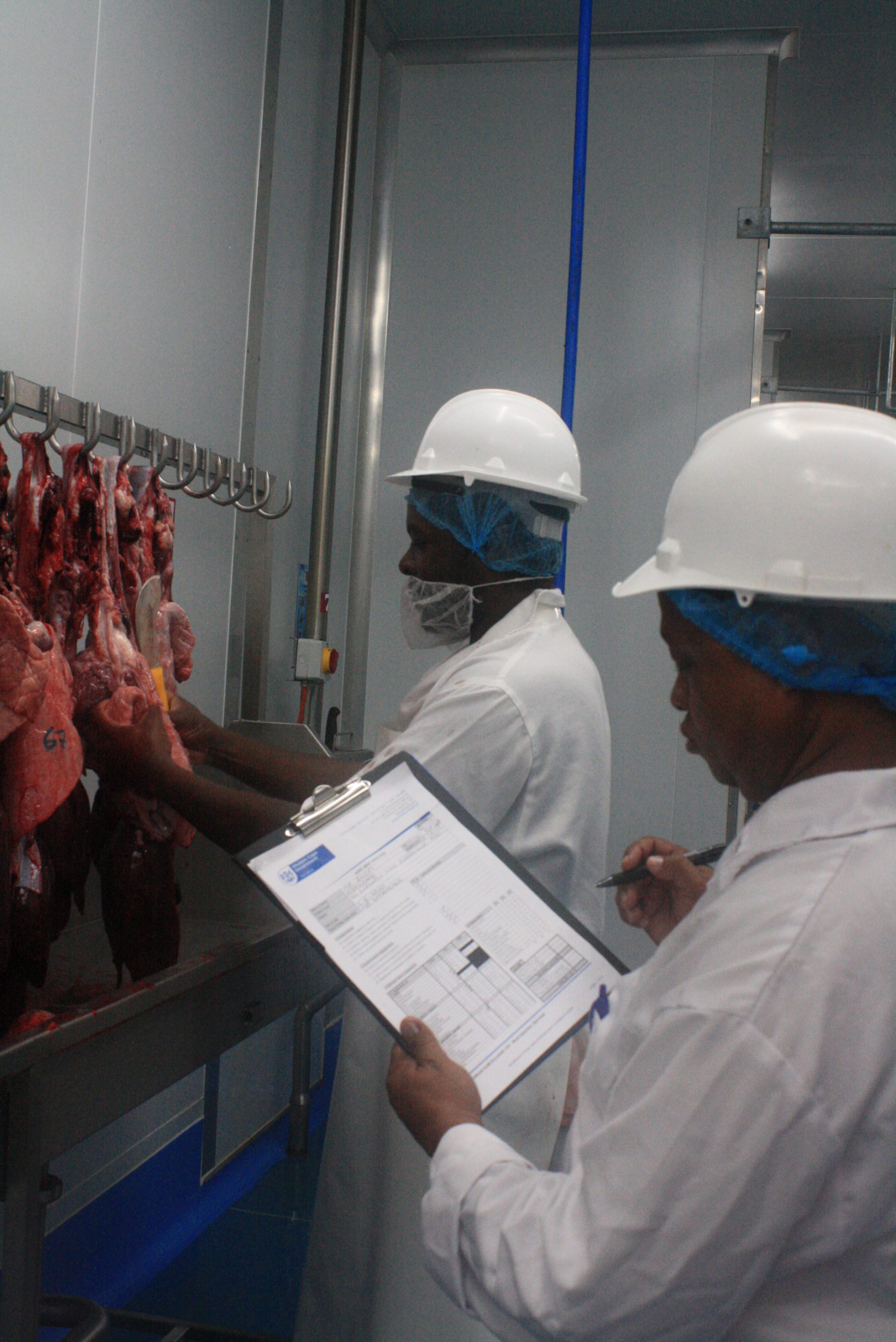
(b) humane handling of animals, prior to slaughter;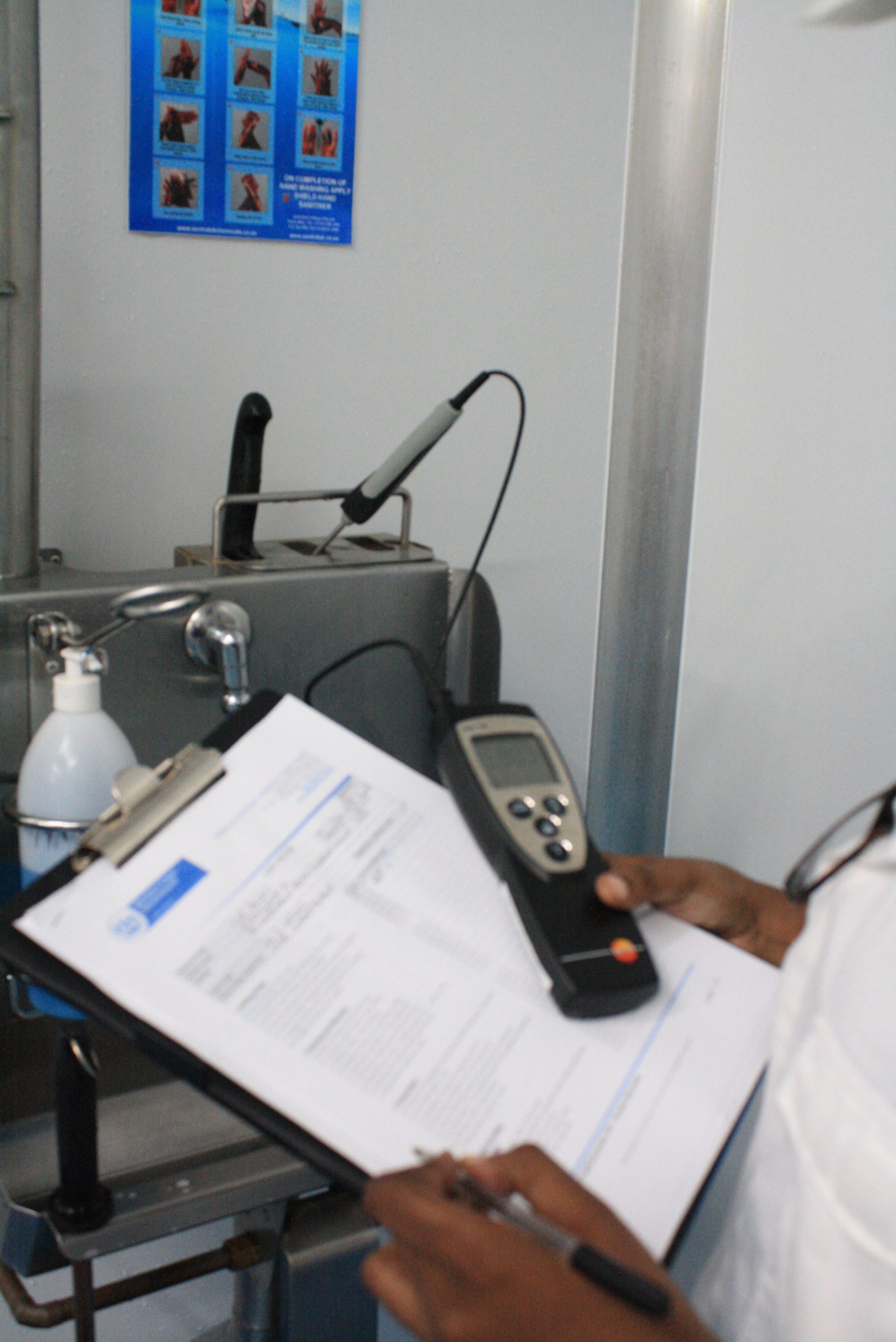
(c) slaughter & dressing techniques;
(d) meat inspection;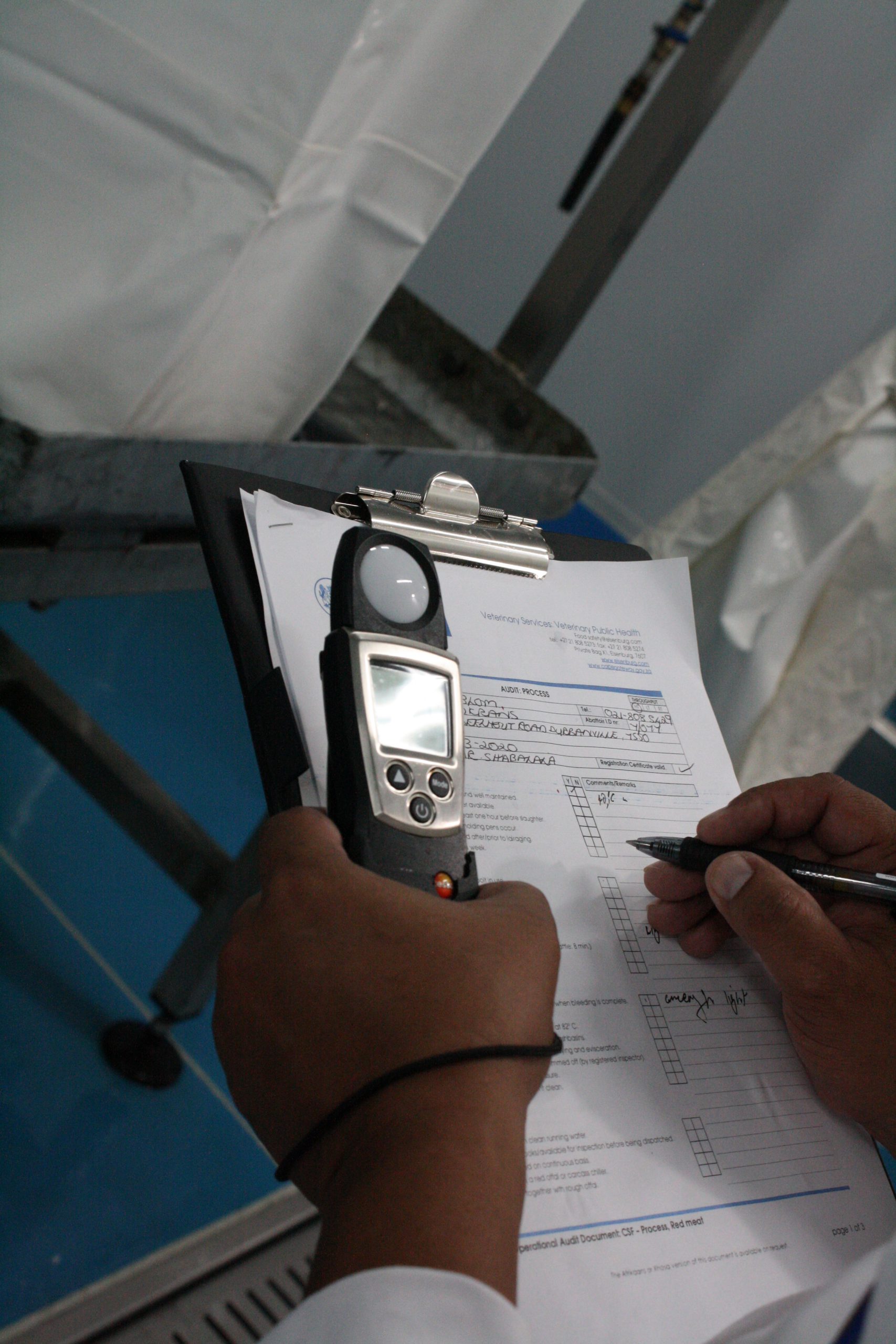
(e) cleaning & sanitation of building and equipment;
(f) chilling & transportation of meat.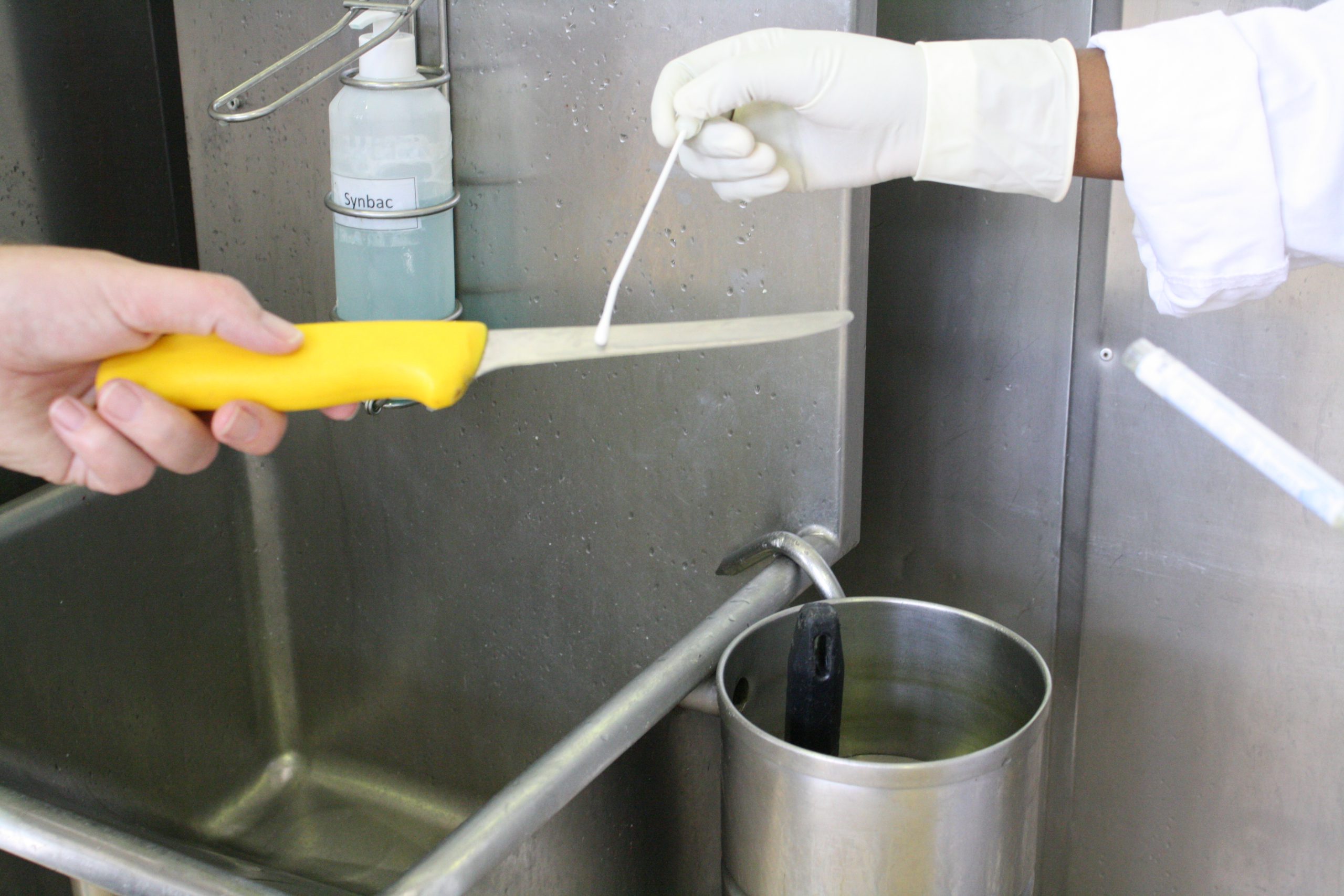
Evaluate and making recommendations to abattoir owners & abattoir personnel on the following matters:
(a) Disposal of condemned meat & inedible products; thus preventing it from reaching the food chain;
(b) Occupational Health & Safety issues. (identification of possible hazards in the workplace)

STRUCTURAL PLANNING OF ABATTOIRS:
Structural planning of all red meat, ostrich, game and poultry abattoirs and cutting plants for local markets. Evaluate and make recommendations to the Director on design drawings of facilities and approval of design drawings from a hygienic point of view. (for example: recommendations in regard with the layout of the abattoir; layout of equipment; process, product & personnel flow; floor drainage; ventilation; disposal of effluent and condemned material; cooling & ablution facilities; etc.) Monitoring progress while under construction to ensure compliance with approved design drawings. Determine structural standards at existing abattoirs and cutting plants and facilitate the registration, upgrading and repair thereof where necessary, to meet minimum norms and standards under the Act through extension. 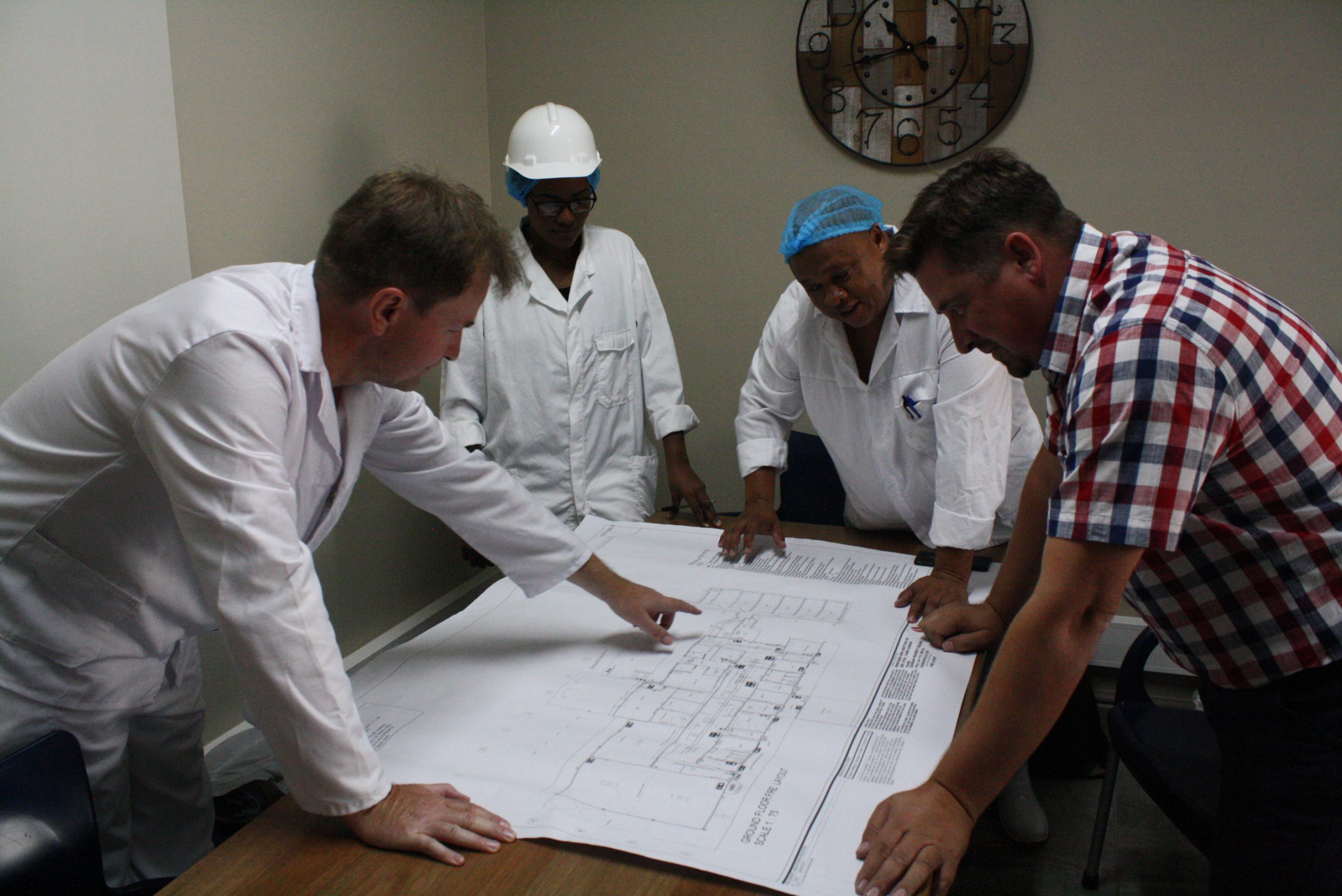
IMPLEMENTING HYGIENE MANAGEMENT/ASSESSMENT SYSTEMS:
Assistance is given to abattoir owners with the implementation and application of Hygiene Management Systems (HMS) at all abattoirs, to ensure good manufacturing practices during slaughtering of food animals. Assistance is given with the implementation of the Hygiene Assessment System (HAS) at all abattoirs in the Province and verification of the scores and monitoring of the corrective action taken, to bring all abattoirs up to standard.
EXTENSION PRACTICES:
Determine through consultation the slaughtering needs of communities and render technical assistance for the establishment of new abattoirs and upgrading of existing abattoirs to meet these needs and thus adding value to food production. Promotion of primary and preventative human health by initiating control programs involving relevant governmental and non-governmental agencies, through the prevention of animal diseases transmissible to humans, (Zoonotic diseases) with emphasis on Tuberculosis, Brucellosis, Internal Parasites (tapeworms) and Food Poisoning (Salmonella). Liaise with various departments, non-governmental organizations and other role-players to promote and implement meat safety awareness programs.
ADMINISTRATIVE FUNCTIONS:
Collection of data; process monthly slaughter returns from abattoir owners to provide data of numbers of animals slaughtered and to report on disease incidence. Compile and submit reports, letters and notices regarding routine abattoir inspections; audits at sterilizing plants; correspondence to role players as require. Provide inputs to the operational plan/regulations and policies for Veterinary Public Health. Register and issuing of registration certificates to all abattoirs complying with the provisions of the Meat Safety Act. Register persons performing meat inspection services at abattoirs. Register facilities approved as sources for the export of hides and skins.
EXPORT CONTROL: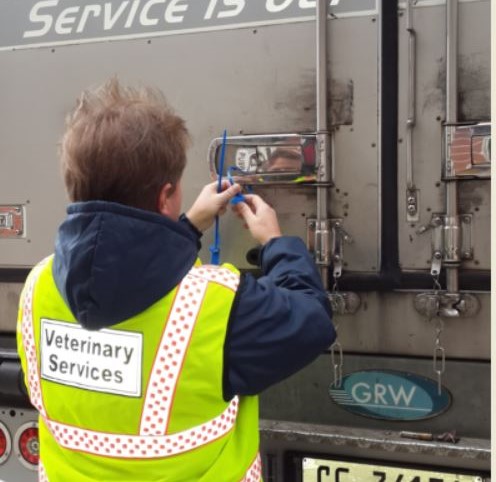
Inspection of meat & dairy products and verification of accompanying documentation for compliance, for export to various African and Middle East countries. Auditing of export facilities for compliance; (abattoirs, cutting plants, processing plants, sources for hides & skins). Monitor and inspect import and export products/animals and accompanying documentation to ensure that prescribed standards are adhered to. Issuing and confirmation of all documentation pertaining to said consignments, if it complies with the applicable requirements/legislation. Direct supervision of the off-loading/loading of containers at various cold stores, to ensure that all requirements are met by personnel of said facilities, during the handling of the products.
NOTE: click on the underlined headings, to open the attached documents/videos.
CONTACT LIST FOR VETERINARY PUBLIC HEALTH PERSONNEL:
INFORMATION APPLICABLE TO ABATTOIR PLANNING:
Background information regarding abattoir planning.
Procedures to follow when applying to build a new abattoir.
Application form for the establishment of a new abattoir. (or the new ownership of an abattoir)
STRUCTURAL REQUIREMENTS FOR ABATTOIRS:
RED MEAT:
Structural requirements for high throughput red meat abattoirs:
Structural requirements for low throughput red meat abattoirs:
Structural requirements for rural throughput red meat abattoirs:
POULTRY:
Structural requirements for high throughput poultry abattoirs:
Structural requirements for low throughput poultry abattoirs:
Structural requirements for rural throughput poultry abattoirs:
SUBMISSION OF ABATTOIR DRAWINGS:
Guidelines on the submission of abattoir drawings for poultry slaughtering facilities:
Guidelines on the submission of abattoir drawings for red meat slaughtering facilities:
Guidelines on the construction of change-rooms at abattoirs:
VETERINARY PUBLIC HEALTH MATTERS:
SOP: Slaughter of Brucellosis positive cattle
Meat Inspection Scheme – (No. 634 of 7-7-2017)
Application form for the registration of meat inspection personnel at abattoirs:
Article, by Dr. Marthinus Wolhuter (Registration of abattoirs)
HYGIENE ASSESSMENT SYSTEM DOCUMENTATION: (HAS)
BLANK COPIES:
Hygiene Assessment System checklist – (HAS) – HT & LT Poultry abattoirs:
Hygiene Assessment System checklist – (HAS) – HT & LT Red Meat abattoirs:
Rural abattoir inspection checklist – (HAS) – Red Meat Abattoirs:
Rural abattoir inspection checklist – (HAS) – Poultry Abattoirs:
APPLICABLE LEGISLATION:
Meat Safety Act – (Act no.40 of 2000)
Red Meat Regulations – (R1072 of 2004)
Poultry Regulations – (R153 of 2006)
Ostrich regulations – (R54 of 2007)
Draft Game Meat Strategy (consultation).
INFORMATION PAMPHLETS:
Meat safety (General)
How to prevent the pork tape worm
Bovine spongiform encephalopathy (BSE) “Mad Cow Disease”:
Controlled & notifiable animal diseases.
Vyf sleutels tot veiliger voedsel
INFORMATION VIDEOS & RADIO TALKS: (FOOD SAFETY)
https://youtube.com/watch?v=qrnZSCgJaLM&feature=share (Various videos on food safety)
https://omny.fm/shows/rsg-landbou/rsg-landbou-9-junie-2023 ( Dr. Micaela Hartman – Nakoming van voedselveiligheidsregulasies)

